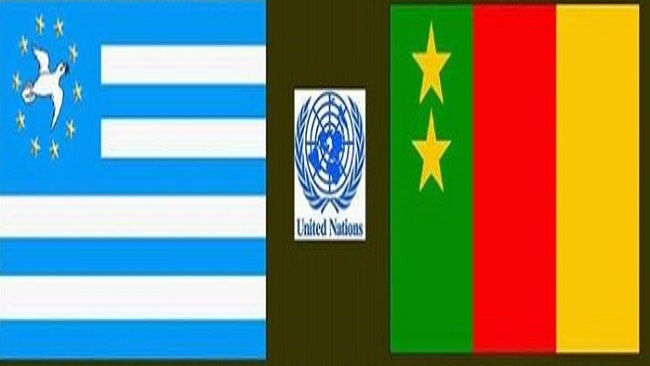Southern Cameroons Crisis: The Situation Report
In recent days thousands of people have taken to the streets in Cameroon’s capital, Yaoundé, to call for a peaceful solution to the armed conflict that began six years ago this month in the Anglophone regions. The daily marches began on Friday, 30 September, and continued until Tuesday, with protesters calling attention to the violations and abuses endured by populations, including killings, abductions and rapes, as the conflict continues across the north-west and south-west regions.
Protest marches are typical during this time of year as October marks several important anniversaries. Six years ago, on 11 October, lawyers, students and teachers in Cameroon began protesting their cultural marginalization by the Francophone-dominated government, leading to a violent crackdown by security forces. One year later, Anglophone separatists proclaimed independence and declared a new state of “Ambazonia” in the north-west and south-west regions. Since then, armed separatists and Cameroonian security forces have continued to clash, resulting in widespread abuses against the civilian population by both sides to the conflict. More than 6,000 people have been killed since 2016.
This month also marks the third anniversary since President Paul Biya launched a National Dialogue aimed at finding solutions to the conflict. Although the Cameroonian government has deemed the dialogue a success, the situation in the Anglophone regions has further deteriorated. In the past year, armed separatists have become increasingly violent, killing, kidnapping and terrorizing populations while steadily asserting control over large parts of the Anglophone regions. Security forces have continued to perpetrate extrajudicial killings and widespread sexual and gender-based violence, burn Anglophone villages and subject individuals with suspected separatist ties to arbitrary detention, torture and ill-treatment.
Despite the continued escalation of the conflict and increasing atrocity risks, the government of Cameroon – as well as the international community – have been unable or unwilling to take effective action. The government continues to deny the severity of the crisis and has failed to address the root causes of the conflict or provide a political means for resolving it. Juliette Paauwe, Cameroon Expert at the Global Centre for the Responsibility to Protect, stated, “what started as a political crisis has become a complex human rights and humanitarian emergency, disproportionally affecting vulnerable populations, including women and children. The conflict warrants concerted efforts by the Cameroonian government and the international community to prevent any further deterioration.” The African Union’s Peace and Security Council and the UN Security Council should urgently help facilitate a ceasefire and inclusive dialogue between the government and separatist groups, mediated by a neutral player on neutral territory.
Source: Globalr2p





